 |
 |
 |
| |
IMPROVING INTESTINAL BARRIER USING GLP-2 AGONIST REDUCES ARTERIAL INFLAMMATION IN PWH
|
| |
| |
CROI 2022 Feb 16
Caroline E. Diggins1, Shibani Mukerji1, Douglas S. Kwon2, Charles F. Saylor1, Lediya Cheru1, Jae Sim1, Meaghan Flagg2, Bjoern Corleis2, Emily Rudmann1, Shady Abohashem1, Ahmed Tawakol1, Janet Lo1
1Massachusetts General Hospital, Boston, MA, United States, 2Ragon Institute of MGH, MIT and Harvard, Cambridge, MA, United States
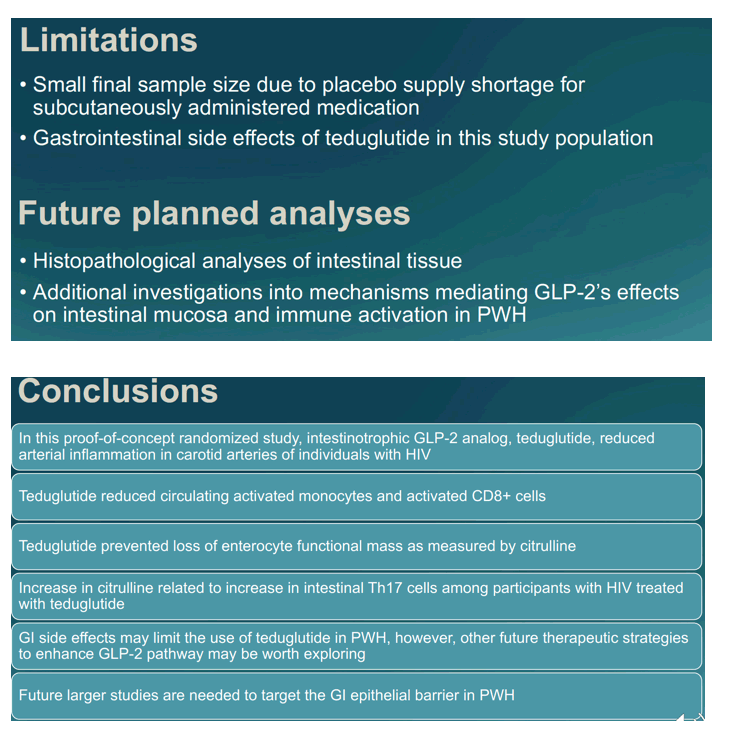
program abstract
Background:
Arterial inflammation, a predictor of cardiovascular events, is greater in people with HIV (PWH) and is related to plaque macrophage content, but the mechanisms driving this elevation are not clear. The intestinal mucosal barrier is impaired in PWH and residual inflammation continues despite HIV RNA suppression with ART. We hypothesized restoration of the intestinal epithelial barrier using the intestinal-specific trophic factor, glucagon-like peptide 2 (GLP-2) agonist, teduglutide would reduce proinflammatory immune cells and arterial inflammation.
Methods:
In a randomized, double-blind, placebo-controlled study, 28 PWH on ART with suppressed HIV RNA were randomized to teduglutide or placebo for 6 months. 20 participants completed the intervention. Arterial inflammation was assessed at baseline and end of study by 18-fluorodeoxyglucose (FDG)-PET/CT. PBMCs were collected for flow cytometric analysis. Targeted metabolites were assessed in plasma by LC-MS/MS.
Results:
Compared to placebo, teduglutide decreased the target-to-background ratio (TBR) of the most-diseased segment (MDS) of the carotid index vessel (left or right carotid artery with higher baseline TBR) by 0.39 (p=0.01 ANCOVA). % Reduction in TBR of the left carotid MDS was greater with teduglutide vs. placebo (-15.44 ± 7.49% vs. +5.55 ± 5.30%, p=0.04). Activated monocyte and CD8+ T-cells decreased with teduglutide vs. placebo (%CD14+CD86+CD40+ of CD14+ monocytes, -19.24 ± 5.31 vs. -3.31 ± 4.96, p<0.05; %HLA-DR+CD38+ CD8 cells of CD3+ cells, -0.33 ± 0.39 vs. +0.67 ± 0.33, p<0.05). Kynurenic acid (KA), an anti-inflammatory intermediate metabolite of kynurenine, trended to increase with teduglutide vs. placebo (9.46 ± 5.62 nM vs. -4.79 ± 5.03 nM, p=0.07 for log2 mean-normalized values). Change in carotid index vessel MDS TBR correlated positively with changes in CD14+CD86+CD40+ monocytes (r=0.55, p<0.05) and HLA-DR+CD38+ CD8 cells (r=0.55, p=0.03) and inversely with KA (r=-0.58, p=0.02).
Conclusion:
Amelioration of the intestinal epithelial barrier with teduglutide decreased arterial inflammation, activated monocytes, and CD8+ T-cells. Teduglutide-treated participants also showed increase in plasma KA, a metabolite with anti-inflammatory effects. This proof-of-concept study provides support for future research investigating intestinal epithelial integrity as a target for reduction of immune activation and cardiovascular disease in PWH.
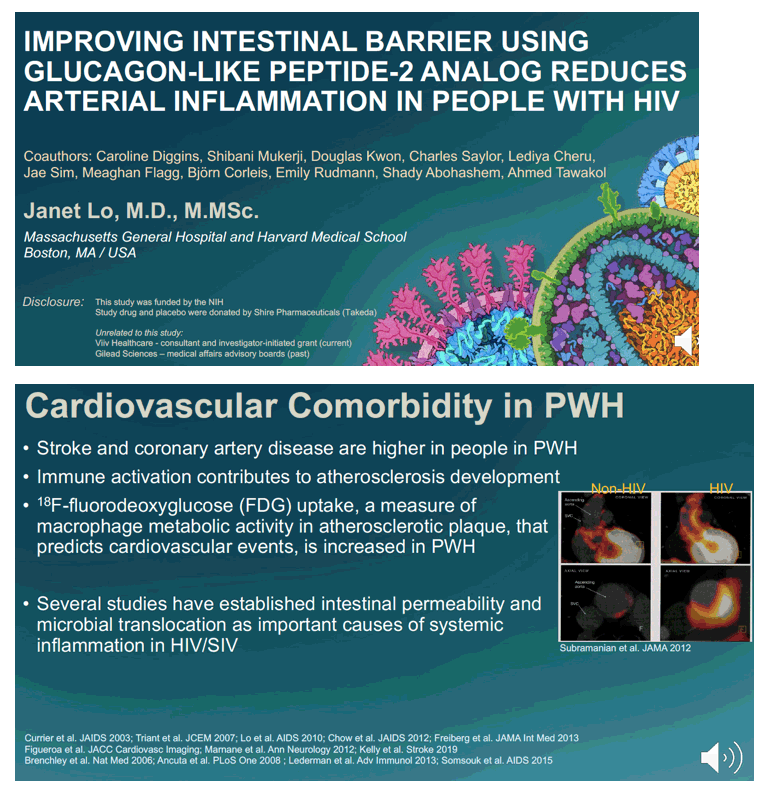
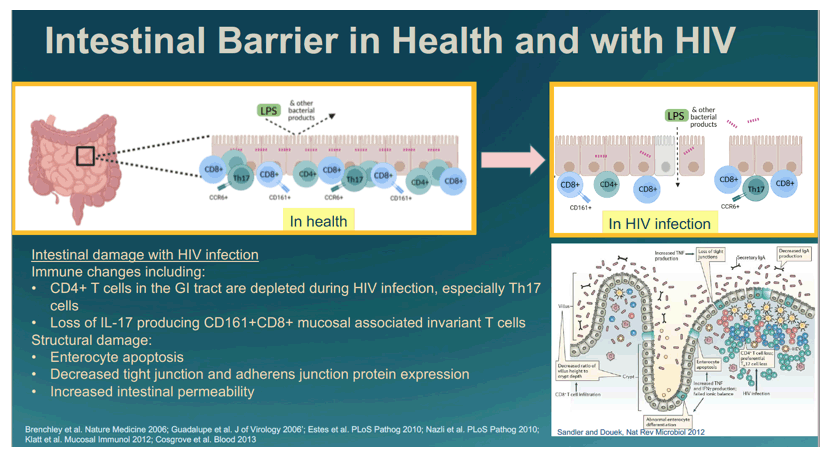
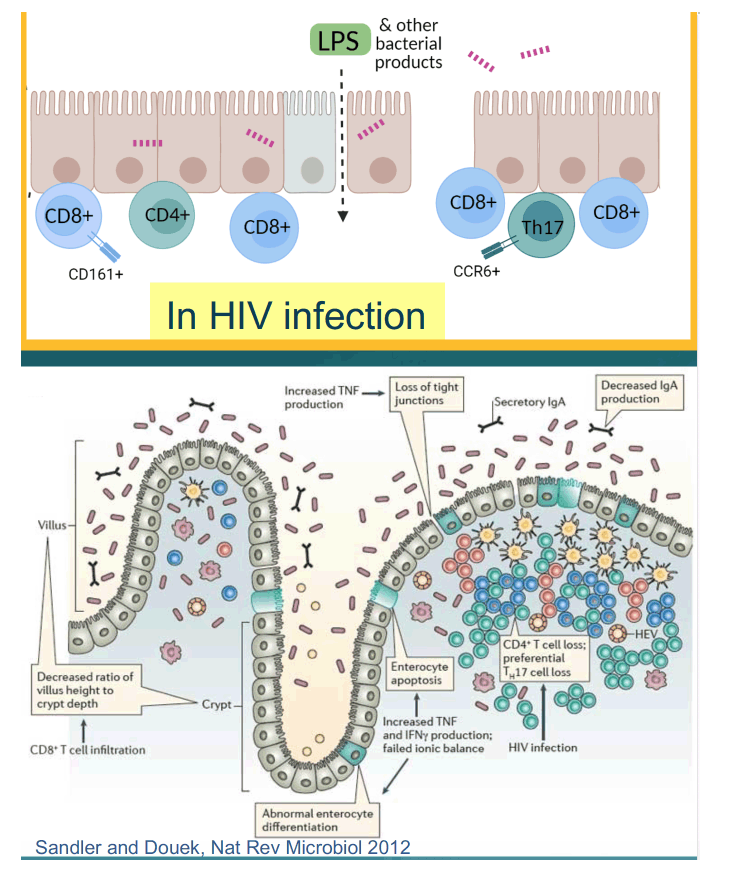
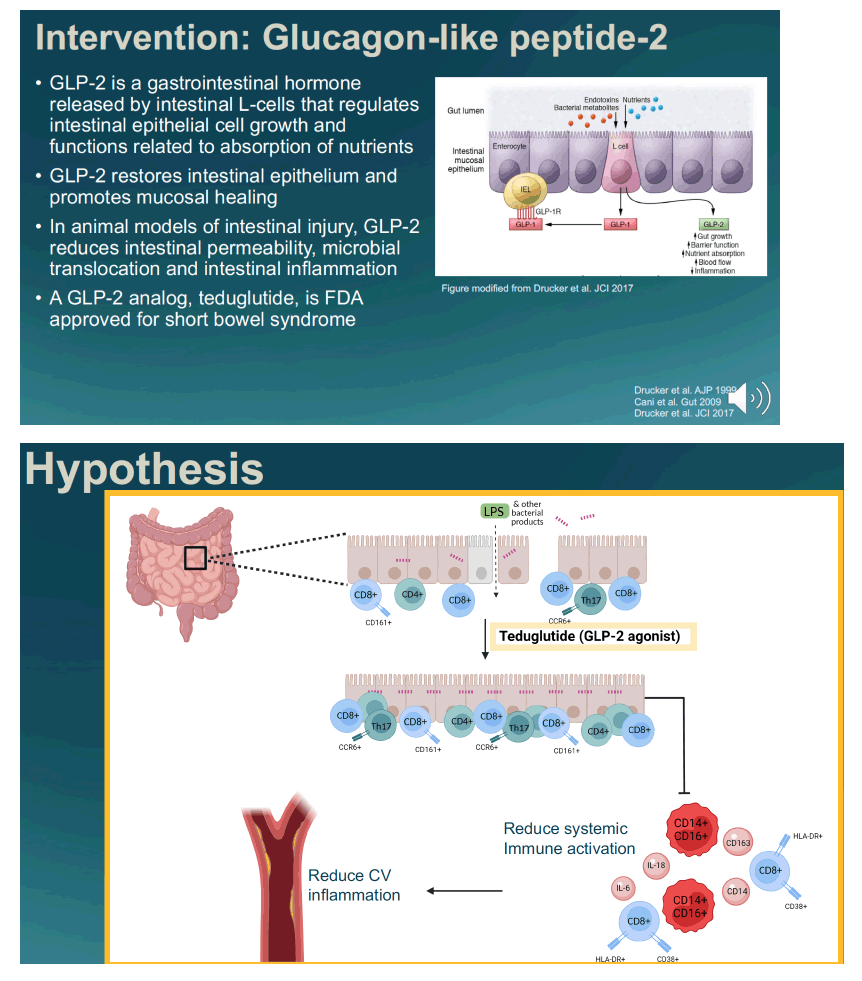
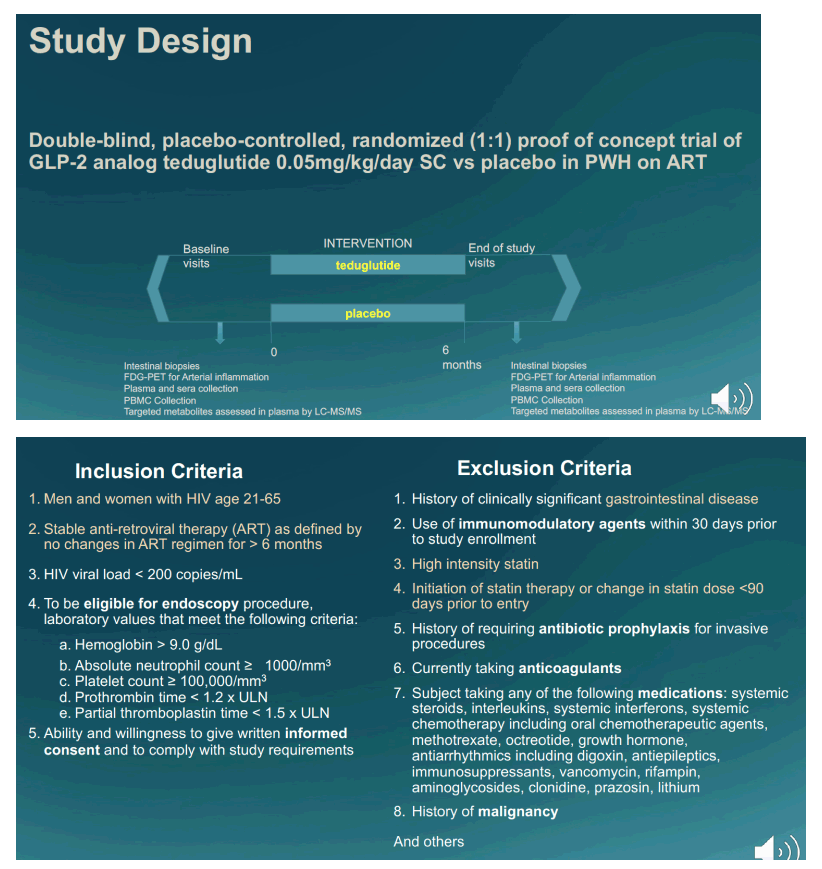
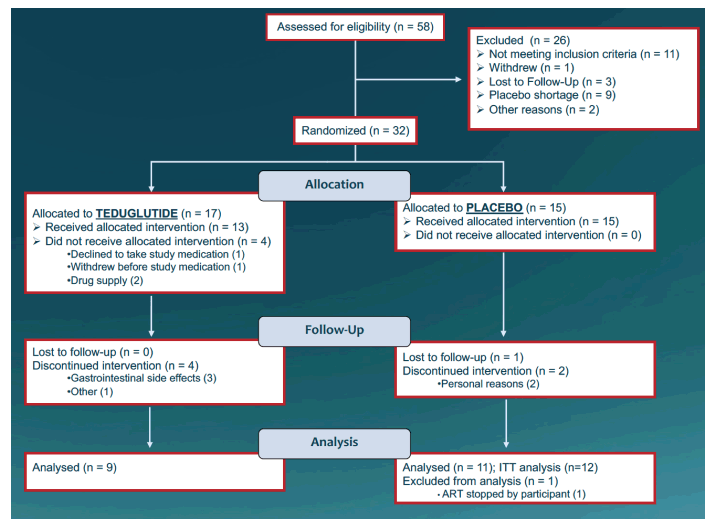
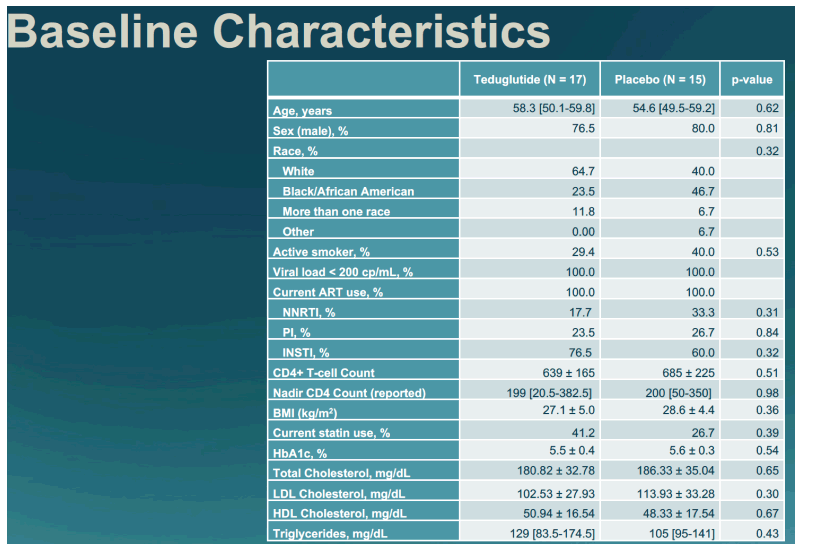
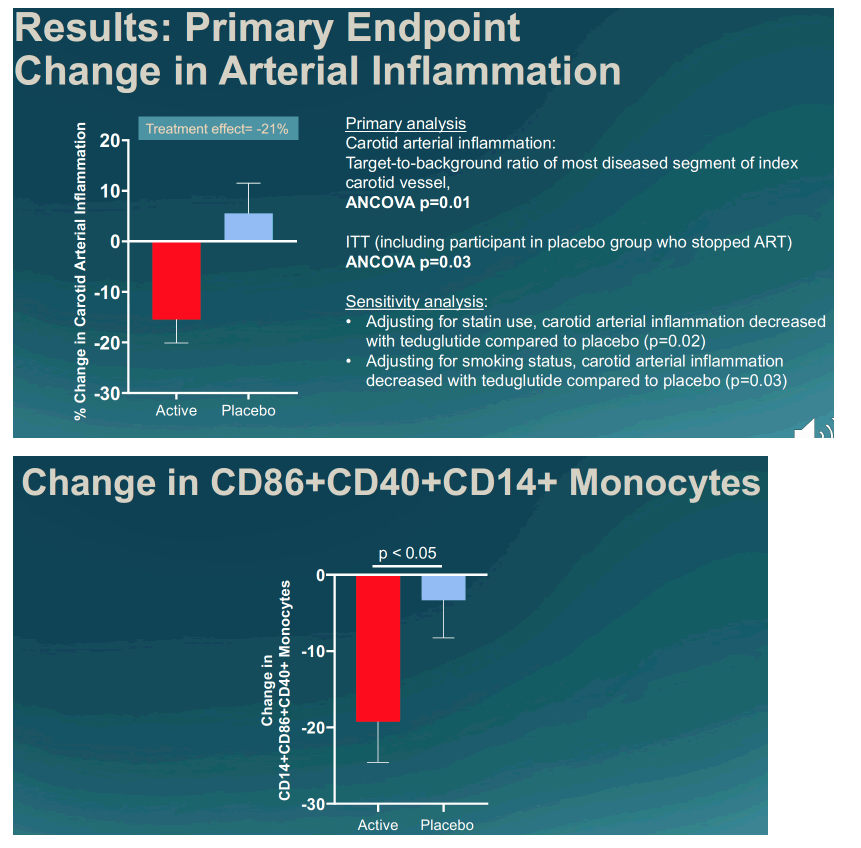
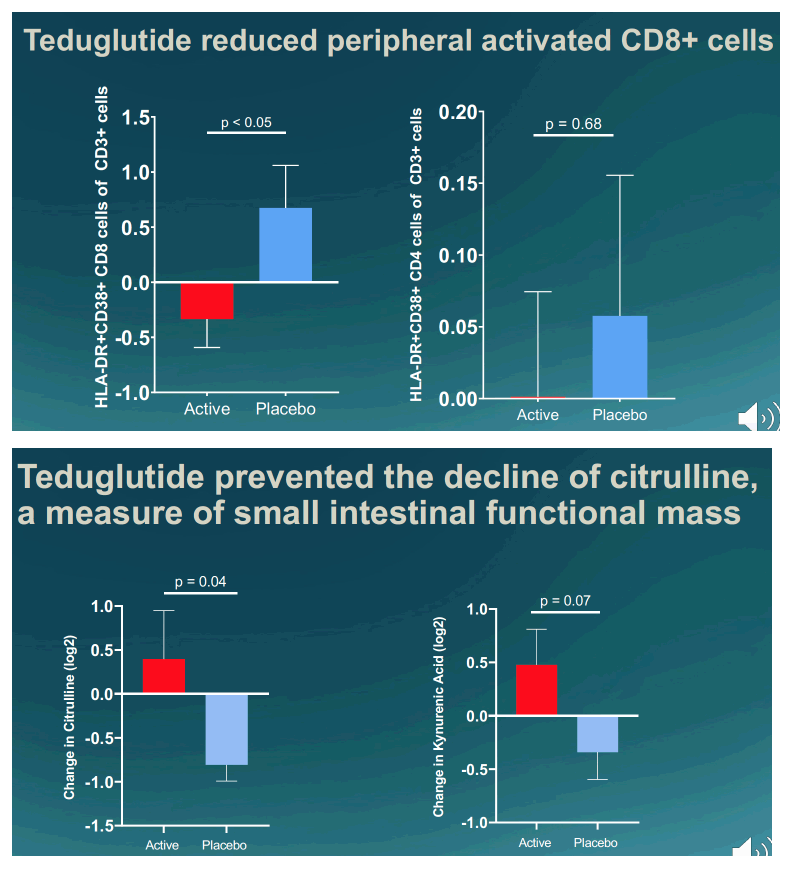
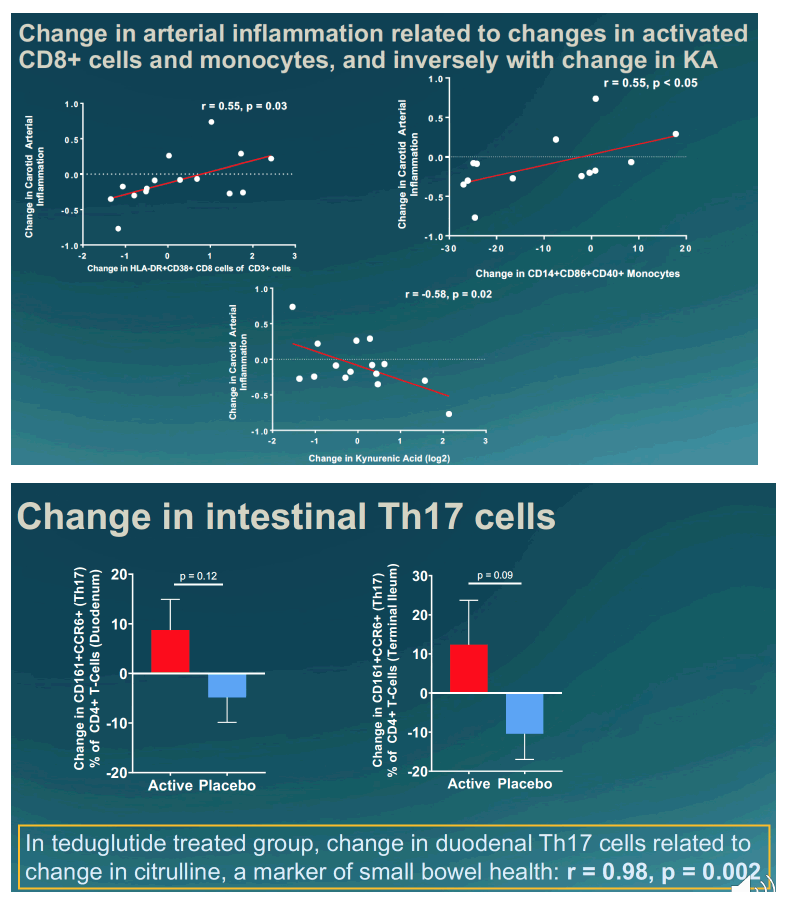
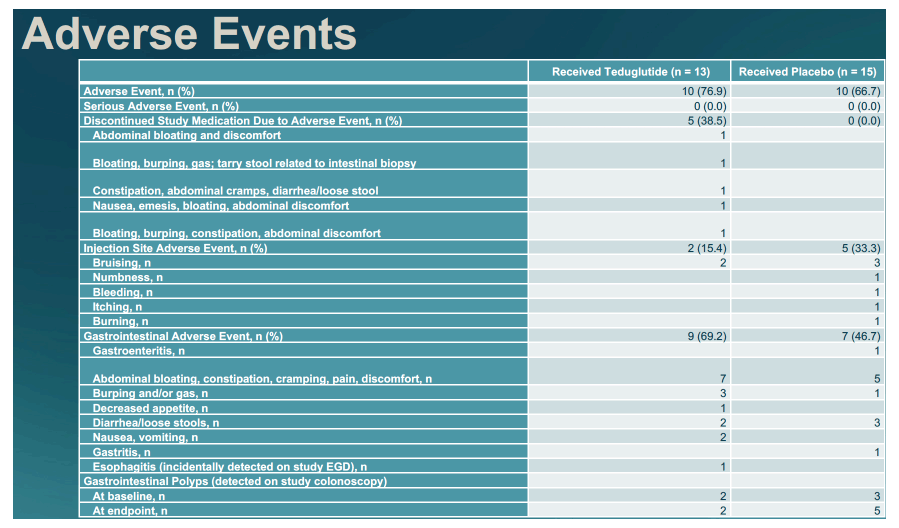
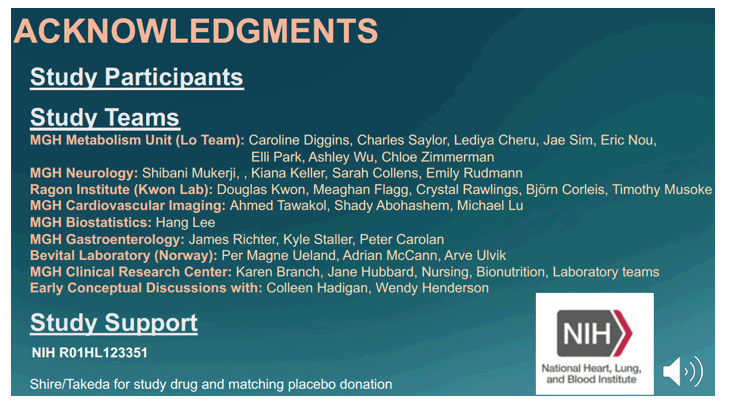
|
| |
|
 |
 |
|
|